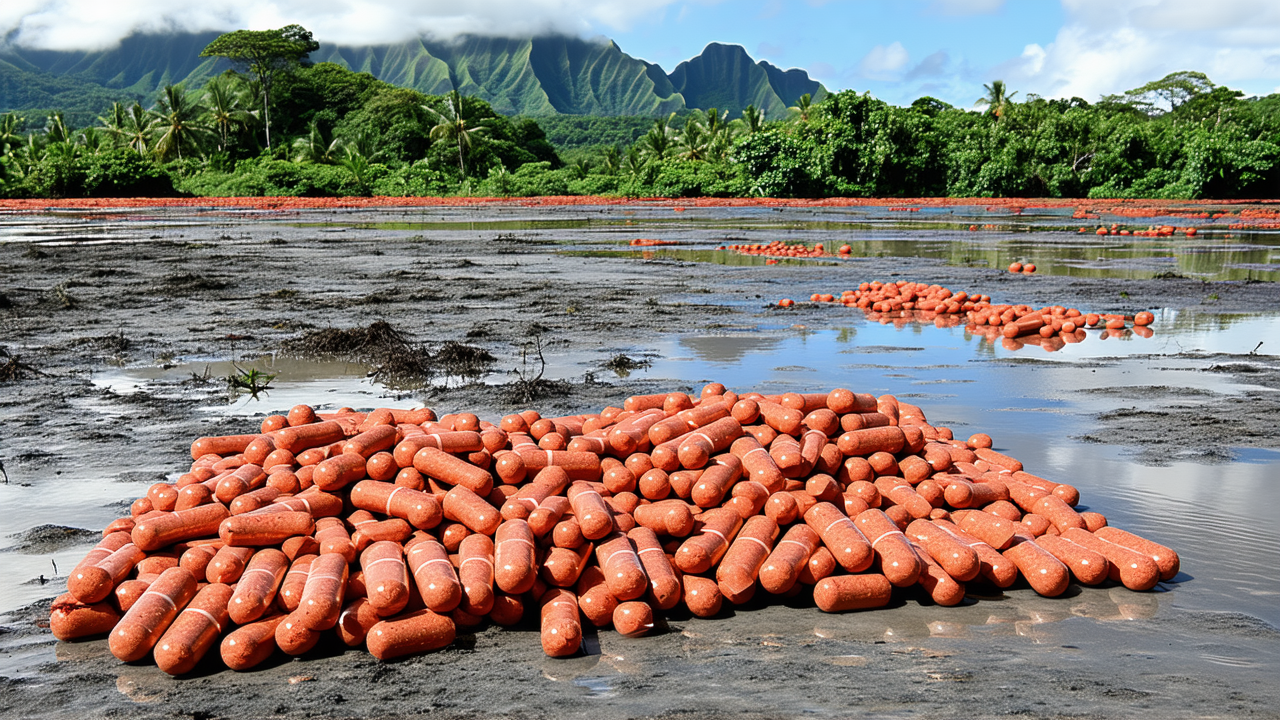New Zealand's Role as a 'Cash Cow' in Pacific Meth Market Sparks Regional Drug Crisis
New Zealand's Role as a 'Cash Cow' in Pacific Meth Market Sparks Regional Drug Crisis
A transnational crime expert has raised urgent concerns about New Zealand's and Australia's role as key hubs in the Pacific methamphetamine trade, which is exacerbating a growing drug crisis across the region.
According to Jose Sousa-Santos, an associate professor at the University of Canterbury's Pacific Regional Security Hub, the situation has been developing for at least five years, with red flags becoming increasingly visible. Countries such as Fiji, Tonga, Samoa, and Papua New Guinea are now facing a surge in methamphetamine use, along with the associated social and health challenges.
Fiji's HIV Outbreak
Fiji has declared an HIV outbreak linked to methamphetamine use, with new cases increasing by 281% from 2023 to 2024, reaching 1,583 new infections. The spread of the virus is attributed in part to needle-sharing among drug users and sexual transmission.
The Shift in Payment Methods
Sousa-Santos explained that initially, drug smuggling operations relied on cash payments to local facilitators. However, about five years ago, this changed when facilitators began receiving drugs like methamphetamine instead of money. This shift allowed local drug markets to grow exponentially, as individuals could sell the drugs for a profit beyond the agreed-upon amount.
Corruption and Law Enforcement Challenges
With the expansion of local drug markets, law enforcement agencies in the region are also being infiltrated. In May, local police in Fiji seized nearly 5 kg of methamphetamine at Nadi Airport, with the suspects including two members of the Fijian Counter-narcotics Bureau and the head of Customs Intelligence. The drugs were traced back to Nigeria via the East Coast of Africa, highlighting the growing complexity of trafficking networks.
Rise of Local Criminal Entities
While international cartels may not be directly involved in the smaller local markets, Sousa-Santos noted that local criminal entities in the Pacific have begun to establish their own trafficking routes to supply the growing demand. Deportees from the US, Australia, and New Zealand have also played a role, bringing with them new tactics that have complicated efforts to combat drug smuggling.
Call for a Holistic Approach
Sousa-Santos emphasized that addressing the crisis requires a comprehensive, culturally sensitive strategy involving regional cooperation, community engagement, and the involvement of both local and international law enforcement agencies. Interpol's involvement is as critical as the input of traditional community leaders at the grassroots level.
The Way Forward
He concluded that any solution must be context-specific and culturally appropriate, ensuring that it addresses not only the immediate drug crisis but also the underlying socio-economic challenges that contribute to the problem.
